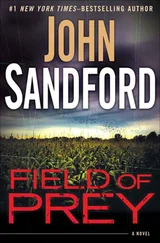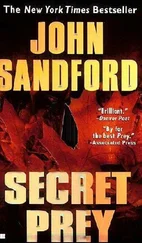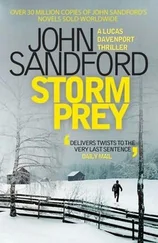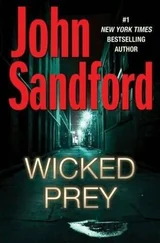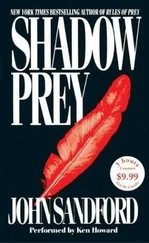“I quit,” Kidd said. “As much as I could, anyway.”
“You could quit because you never wanted to do it that much—industrial espionage, sneaking around in factories . . . it all seemed so weird,” Lauren said. “You didn’t need it, because you’re basically a painter, not a thief. But I’m basically a thief. That’s what I do. That’s my painting. I’m not basically a housewife.”
“But nobody’s going to put me in jail for painting . . .”
“That Times critic might,” Lauren said. “He said you were a throwback to a bygone era and that your prices were absurd for something as old-fashioned as paintings.”
“I’m trying to be serious,” Kidd said. “About everything. That’s why I showed you the video. I want you to think about your life.”
She turned away from him and bobbed her head. “All right. I’ll do that. I will do that, Kidd.”
• • •
THEY TALKED for two hours. Lauren was mostly right—Kidd was basically a painter, but there was one spot in his heart that would never go away, reserved for the beauty of computers and their languages.
Much later that night, Kidd was back in the studio when a computer chirped at him. He went over and looked at it. Military records depository. He touched a key and the computer on the other end hesitated. “Open sesame,” Kidd said, feeling the rush.
The army’s computer opened up.
CHAPTER 15
Lucas was lying on a couch reading the Steve Jobs biography, which he’d been meaning to do for a long time, when his cell phone rang. He looked at the screen, which said it was two minutes after eleven o’clock, and “Caller Unknown.”
“Hello?”
“Don’t say anything. This is a wrong number. Look at your e-mail. Don’t call me back before tomorrow night.”
Click. Kidd was gone; the call had lasted six seconds.
• • •
LUCAS GOT OFF the couch and padded back to his study, sat down at the computer, and brought up his e-mail. He had incoming mail from the military records depository.
He clicked on it, and found two PDF documents. He clicked on the first and found a thirty-page document on Ronald L. Carver, Sgt. E-8 U.S. Army, marked “Secret.” Lucas had never been in the army, and thought E-8 was a rank, but wasn’t sure. He went out on Google to check: E-8 was a master sergeant.
The document was a mass of acronyms and it took him an hour to work through the thirty pages, going back and forth to Google, searching for definitions, making notes on a yellow legal pad.
Weather stuck her head in and said, “You’re not coming to bed?”
“Not for a while.” She was up late; not working in the morning. “Something came up.”
“Don’t drink any more Diet Coke or you’ll be up all night.”
She went away and Lucas went back to Carver. Scanning the document, he’d figured that Carver had spent three years in Iraq and two more in Afghanistan. He had a Silver Star and a Bronze Star for bravery under fire, and had been wounded at least twice, with two Purple Hearts. Neither wound had been serious. Both had been treated in-country, and he’d returned to active duty in less than a month, in each case.
Then something happened, but Lucas couldn’t tell what it was. Carver had been reprimanded—exact circumstances unspecified—and very shortly afterward had been honorably discharged.
Reading through the document a second time, he determined that Carver had been through a number of high-level training courses: he was a Ranger, he was parachute qualified, he’d taken a half-dozen courses in anti-insurgency warfare, and had spent a lot of time on “detached duty” in both Iraq and Afghanistan.
Working through military sites he found through Google, he determined that Carver had made the master sergeant rank about as quickly as was possible. Then he was out.
Lucas leaned back in his chair and processed it. He thought Carver had probably been some sort of enlisted-ranks combat specialist, what the Internet military sites called an “operator.” Lucas suspected that he’d killed a lot of people—his training all pointed in that direction.
But the reprimand could cover a lot of territory. Carver, he thought, might very well have killed either the wrong person, or too many of them. With Carver’s medals, experience, and training, Lucas thought it unlikely that he’d been kicked out for rolling a joint.
• • •
IN A LOT OF WAYS, the records for Douglas Damien Dannon were parallel to Carver’s. Dannon had been in the military for six years, leaving as a captain, honorably discharged. There was nothing in the records to indicate that he’d been pushed out.
Like Carver, he’d spent most of his service time in either Iraq or Afghanistan. He’d won the Bronze Star for bravery under fire, had been wounded by a roadside bomb during the initial invasion of Iraq. After a couple of years as an infantry lieutenant, he’d been assigned to a mobile intelligence unit, and then later, to an intelligence unit at a battalion headquarters. Lucas wasn’t sure exactly what that meant, and spent some time looking up words like battalion , company , brigade , and division .
A battalion was apparently a mid-level unit, in size, and his particular battalion had apparently been deeply enmeshed in combat in Iraq. Dannon had gotten good efficiency marks, but Lucas wasn’t sure how exactly to evaluate them. In his own bureaucracy, good efficiency marks were subject to interpretation by insiders, and could damn with praise a little too faint.
• • •
BY THE TIME LUCAS went to bed, a little after two in the morning, he’d learned enough to know that Grant’s security detail could plan and carry out a murder with calculated precision and had no large problem with qualms. They would have the means, the training, the personalities that would allow them to get it done.
If they were responsible for Tubbs’s murder, catching them would be the next thing to impossible.
Next to impossible , he thought, as he drifted away to sleep. Next to . . .
He opened his eyes, listened to Weather breathing beside him, then crept out of bed again, taking his phone with him, into the study, where he called Virgil Flowers. Flowers answered on the third ring and asked, “What happened?”
“I need you up here tomorrow, early. Ten o’clock or so.”
Flowers groaned. “You had to call me in the middle of the night to tell me that? I thought the Ape Man was out again.”
“Sorry. I was afraid you’d be out of there at five o’clock, in your boat,” Lucas said. “I’m running out of time up here, and I need you to look at some paper. You’re the only guy I know who could do it.”
“What?”
“You were an army cop,” Lucas said. “See you up here.”
Lucas hung up, went back to bed, and slept soundly.
• • •
THE NEXT MORNING, Weather dropped a newspaper on his back and said, “Ruffe.”
“What’d he say?”
“He said that the state—meaning you, though he doesn’t use your name—is investigating the possibility that Tubbs was killed to cover up the dirty trick on Smalls. The Democrats are furious, while the Republicans are outraged.”
“So . . . no change,” Lucas said.
“Watch your ass, Lucas,” Weather said. “The whole thing is about to lurch into the ditch.”
• • •
A COUPLE OF HOURS later, Virgil Flowers, a lanky man with long blond hair, put the heels of his cowboy boots on Lucas’s desk and turned over the last page of the two documents, which Lucas had printed for him. Flowers said, “You’re right. These are two goddamned dangerous guys. Carver, especially, but this Dannon wouldn’t be a pushover, either. He’d be the brains behind the operation.”
Читать дальше

